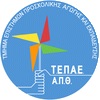Οι παιδαγωγικοί πράκτορες στα ψηφιακά περιβάλλοντα μάθησης αξιοποιούνται ως βοηθοί που συμβάλλουν στην αλληλεπίδραση των μαθητών/τριών με το περιβάλλον και τους/τις υποστηρίζουν στη διαδικασία της μάθησης. Στην παρούσα έρευνα διερευνήθηκε η επίδραση της χρήσης τεσσάρων αφηγηματικών παιδαγωγικών πρακτόρων, ενσωματωμένων στο διαδραστικό περιβάλλον μάθησης Γεω-Ίστωρ, στην ανάπτυξη μεταγνωσιακών στρατηγικών ανάγνωσης. Οι πράκτορες αυτοί, εκπροσωπώντας αφενός την στοχοπροσήλωση (Alice) και αφετέρου τη δηλωτική (Ίρις), τη διαδικαστική (Σήφης) και την πλαισιοθετημένη γνώση (Θωμάς) λειτούργησαν ως βοηθοί φθίνουσας καθοδήγησης. Οι διάλογοι μεταξύ των πρακτόρων αυτών βασίστηκαν, κυρίως, στον μετασχηματισμό των δηλώσεων της, προσαρμοσμένης στον ελληνικό πληθυσμό, κλίμακας MARSI προκειμένου να διευρύνουν τη χρήση μεταγνωσιακών στρατηγικών ανάγνωσης από τους μαθητές/τριες. Κατά την έρευνα, που πραγματοποιήθηκε σε 54 μαθητές/τριες της Α τάξης Γενικού Λυκείου, διερευνήθηκε η αποτελεσματικότητα των παιδαγωγικών πρακτόρων κατά τη διαδραστική διδασκαλία σε σύγκριση με την αποτελεσματικότητα της διδάσκουσας κατά την παραδοσιακή διδασκαλία. Από την έρευνά μας επιβεβαιώνεται ότι οι παιδαγωγικοί πράκτορες ως βοηθοί φθίνουσας καθοδήγησης μεταγνωσιακών στρατηγικών δημιούργησαν ένα ευχάριστο περιβάλλον μάθησης και κινητοποίησαν σημαντικά τους/τις μαθητές/τριες για τη χρήση μεταγνωσιακών στρατηγικών ανάγνωσης και την αύξηση της μεταγνωσιακής τους ενημερότητας. Τα συμπεράσματα της παρούσας έρευνας συμβάλλουν στη συνεχιζόμενη συζήτηση για τις προϋποθέσεις δόμησης και χρήσης των παιδαγωγικών πρακτόρων στην εκπαιδευτική διαδικασία.
(EL)
Pedagogical agents in digital learning environments are used as a tool that contributes to the interaction of students with the environment and supports them in the learning process. In the case of the GEO-HISTOR educational tool, fading scaffolding is provided in the form of narrative agents who converse with each other, exchanging ideas on the use of reading strategies. The present research investigated the effect of using four narrative pedagogical agents embedded in the GEO-HISTOR interactive learning environment to enhance students’ metacognitive reading strategies. These agents, representing, on the one hand, goal orientation (Alice) and, on the other hand, declarative (Iris), procedural (Sifis) and conditional knowledge (Thomas), functioned as fading scaffolding assistants. The dialogues between these agents were mainly based on the transformation of the statements of the MARSI scale - adapted to the Greek population - in order to expand the use of metacognitive reading strategies by the students. For the dialogues between the agents, the 30 statements of the MARSI scale were grouped into strategies before, during and after reading and transformed, forming the main meaning background in the dialogues, where the narrative agents exchange opinions on the way of studying, provide the necessary procedural facilities to the students for the text reading process. During the interactive teaching, before studying each of the ten teaching units, each student was guided to use reading strategies by the embedded narrative pedagogical agents by watching short videos. While the research was carried out on 54 students of the 1st grade of the General High School, the effectiveness of the pedagogical agents during interactive teaching was investigated compared to the effectiveness of the teacher during traditional teaching. This study monitored the development of metacognitive reading strategies in each of the ten instructional units of the intervention in both sections (control and intervention). Similar measures of metacognitive awareness of reading strategies and comparisons between the two sections were made before and after the intervention and at the re-test (one month later). For the data collection, the MARSI-2fR scale was used, integrated into the GEO-HISTOR interactive environment. The present research explored metacognition in the context of metacognitive awareness of reading strategies. More specifically, the distinction of strategies into text-oriented (TEXTOR) and extra-textual (TEXTOUT) reading strategies were adopted, a distinction formulated explicitly for the Greek educational environment. Based on the data of the present research, interactive teaching (intervention group) results in metacognition values more significantly than those of traditional teaching (control group) both overall (MARSI-2fR scale) and in terms of the use of TEXTOR and TEXTOUT reading strategies. Therefore, the pedagogical agents, who provided metacognitive procedural facilitation with fading scaffolding through the GEO-HISTOR learning environment, effectively influenced the students to use: a. TEXTOR strategies that are primarily strategic practices and functional ones aimed at semantic understanding of the text without seeking additional help, b. TEXTOUT strategies concerning strategies related to the evaluation, analysis and control of the text with tangible or intellectual extratextual material. It appeared that the students of the interactive intervention moved away from the exclusive focus on the content of the textbook in order to achieve higher grades and sought to approach additional supplementary material to deepen knowledge through extratextual reading strategies. The study confirmed that pedagogical agents as assistants in fading scaffolding of metacognitive strategies created a pleasant learning environment and significantly motivated students to use metacognitive reading strategies and increase their metacognitive awareness. The conclusions of this study contribute to the ongoing debate on the conditions for the construction and use of pedagogical agents in the educational process.
(EN)
 Τμήμα Επιστημών Προσχολικής Αγωγής και Εκπαίδευσης (ΤΕΠΑΕ)/Α.Π.Θ.
Τμήμα Επιστημών Προσχολικής Αγωγής και Εκπαίδευσης (ΤΕΠΑΕ)/Α.Π.Θ.



